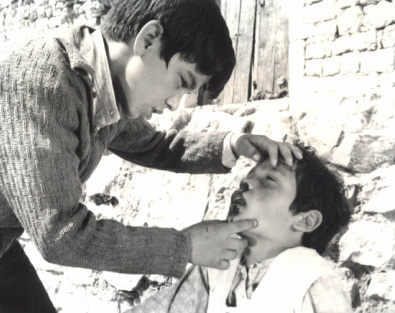Enea Zheku (Tomka)
Recollections of Rebellion
By Enea Zheku
Translated and abridged from his chapter in the memorial book Teta Xhano.
Enea Zheku was born and raised in Tirana, Albania, where he still makes his home. He went on acting in Kinostudio productions until 1986. He studied drama at the Art Academy of Tirana, and he currently owns and operates a restaurant in Tirana.

